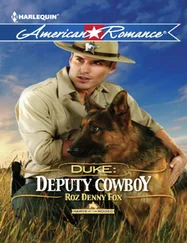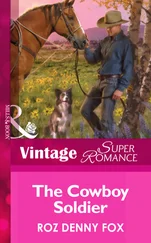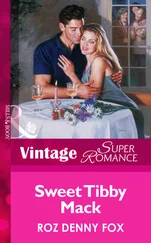One child’s hand shot up. “Is that sheep’s wool you’re using?”
“Good question. No. It’s cotton. The first Kentucky weaver to use cotton probably bartered for as little as four pounds of cotton seed from a Virginia farmer. Records are sketchy, but that’s the recollection of early settlers. Again, your great-great-great-grandmothers spun the thread and dyed it with native bark and berries. It was expensive to buy indigo-blue or cochineal-red coloring. Which is why, if you see early Kentucky weavings in museums, they’re true natural colors.”
Sarah Madison tossed her head saucily. “Why go to so much work, Ms. Ashline, when we can drive to the mall to buy clothes, pot holders, bedspreads and stuff?”
“Not so many years ago, women helped supplement the family income, or filled their kitchen cupboards, by bartering and trading their weavings. And believe it or not, there are still families who live too far from a town to have ready access to the things you mentioned. My grandmother and others before her traveled on foot or horseback in remote sites to collect and preserve weaving patterns that might otherwise be lost.”
“Why do you weave?” asked a bored-looking girl. “I mean, you live in Ridge City, right? You could just go to the mall.”
“Ah. Another good question. I discovered I have a strong urge to create. I enjoy seeing an ancient pattern come to life under my hands. Like many other women, I gain satisfaction from making such pieces and using them in my home.” She laughed. “Fortunately for me, Maggie,” she said, reading the name off the last questioner’s badge, “a lot of busy women think like me but feel like you. They want handmade items on their tables, beds and windows, but lack the time, desire or knowledge to produce cloth themselves.”
Another reed-thin girl straightened to peer at her friends through thick cocoa-colored bangs. “I think it’d be cool to weave. Look what Ms. Ashline’s done just since she started talking. I’ll bet if we tried, we could all make our moms Christmas gifts.”
“You could,” Laurel agreed, and at once saw that the interest she’d noticed in Louemma Ridge’s expressive eyes had been extinguished. “I see disbelief written on a few faces. Making things like pot holders or place mats is much easier than you obviously think. Maggie,” she said, choosing the girl who, other than Louemma Ridge, least wanted to participate. “Come here and I’ll show you how to work the shuttle. I’ll show each of you while Mrs. Madison prepares your snack.”
The children jumped to their feet and crowded around. Without fanfare, Laurel left the table. She gave the child seated in the wheelchair a warm smile, then wheeled her into position near the table so she could watch what the others were doing.
“Louemma can’t do this,” Sarah Madison said snippily. “She can’t do anything the rest of us can. I don’t even know why she’s here.”
Laurel sent her a stern look. “A highly respected Kentucky weaver by the name of Lou Tate Bousman had more faith in our craft than you do, Sarah. Thanks to her and some of the weavers she taught, a lot of people with hand, arm and back injuries learned to successfully operate a loom.”
“Right,” Sarah drawled. “I guess Louemma could move that bar back and forth with her feet.”
Most of the children tittered. Except for Brenna, who darted a sympathetic glance toward Louemma before scowling at Sarah.
Laurel wouldn’t let Sarah’s remark go. “Girls, there are artists who paint holding a brush in their mouth or with their toes. Everything is possible.”
Charity Madison and Alan Ridge, who’d gone into the kitchen, arrived back in time to hear Sarah’s rude statement.
“Sarah Michelle Madison!” Her mother set down a tray of juice and cookies, and grabbed her daughter’s arm. “If I hear you speak in that manner again, you won’t go to the new Disney movie tonight.”
The child jerked out of her mom’s grip, but although her expression was one of stormy resistance, she bit back any response that may have run through her mind.
Charity paused behind Louemma. “Pay Sarah no mind, hon. Her daddy says she’s going through another phase. Oh, my! Look what you all have made in the few minutes I’ve been gone.” Charity leaned across the table to admire the weaving, which had grown several inches under Laurel’s tutelage.
“I did the most,” Jenny said, dancing back and forth. “For our program next week, Mrs. Madison, can we all go out to Ms. Ashline’s place and see the spinning wheel and stuff?”
“Oh, I don’t know.” Charity, who was now being pressured by all the girls except Sarah, turned to gaze helplessly at Laurel.
“I’ll have to check my calendar,” Laurel said, not wanting to make those arrangements in front of Louemma, which would surely add to her discomfort.
Charity pointed to a day planner peeking out of Laurel’s quilted handbag. “Isn’t that where you’d write down your appointments?”
Flushing, Laurel snatched up the book and flipped to the proper page. Unfortunately, the children had crowded around her, and they all saw that the page was blank.
“Yay!” Jenny flung her arms in the air and squealed at the top of her lungs. “She hasn’t got anything at three o’clock. We can go, we can go!”
Since there was nothing to do but block out the time, Laurel grabbed a pen and drew a big X through the hour from three to four. “Will you bring treats?” she asked Charity. “Or do I need to provide a snack for the children?”
“Mercy, I wouldn’t expect you to feed the girls. It’s kind enough of you to extend your program to include a session on spinning. Thank you so much. It’s been quite a while since I’ve seen them this excited over a project. Well, some are,” she added, dolefully eyeing her daughter.
Laurel figured she’d have to suffer through Sarah’s cattiness and probably even Maggie’s indifference for one more day. She quickly dismissed the idea of seeing Louemma Ridge at the next gathering. Her father was already preparing to leave. As Laurel still wanted to tell him how insensitive she thought he was in subjecting his daughter to this demonstration without adequate preparation, she rushed to gather her things, and started after him.
“Thank you for giving me an opportunity to explain the art of weaving,” Laurel remembered to tell Charity as she moved toward the door. “Which reminds me, you’ll need my address.” Taking out a business card, she scribbled on the back.
Charity gave it a cursory glance. “I turn at Vining Mill Road?” She looked up. “Are you living at Hazel Bell’s old place? Goodness, you probably don’t even know who that is. I guess you’re renting from Alan.”
“Renting from—?” Laurel paused, pulling her eyes away from his broad back as he disappeared out the door. “Hazel willed me the property when she died.”
“Willed it to you? But I, uh, gosh…didn’t realize she and Ted had bought Bell Hill. Last week I thought Hardy Duff told Pete—Pete’s my husband… Oh, never mind. Pete only listens with half an ear to what’s being said.” Charity was called away from the door by her daughter, who demanded her immediate attention. With a shrug, Charity grinned at Laurel. “At times I envy you single women.”
“It does have its benefits,” Laurel agreed. “But I do have responsibilities. Two saddle horses and a dog. By the way, are any of the girls allergic to dogs? Mine is underfoot all the time.” She said it almost hopefully.
“I don’t think anyone in the group has allergies. Unless Louemma’s developed some since her accident. Maybe you’d better catch Alan and ask him.”
“Oh, I’m sure he won’t bring her all that way. The area around my cottage is still quite primitive. Visitors park west of the stream and cross on a footbridge to reach my place. The cabin where my spinning room and looms are located is quite a trek up a gravel path, if you can even call it a path.”
Читать дальше












